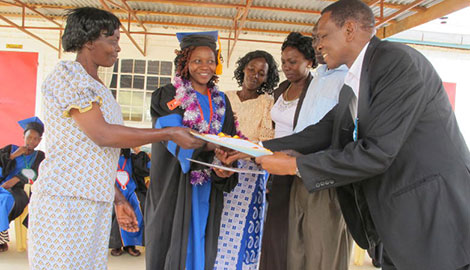×
The Standard e-Paper
Smart Minds Choose Us
 |
| Felistas Kavutha (centre) receives her certificate during the graduation. She was accompanied by family members. |
Kitui, Kenya: Did you know you can be admitted to university even if you did not qualify for admission to secondary school? Hilda John, who scored 208 marks in KCPE, plans to take advantage of this to enroll in university later this year.
Hilda is among beneficiaries of a unique Government programme that aims to have people with vocational skills join universities.